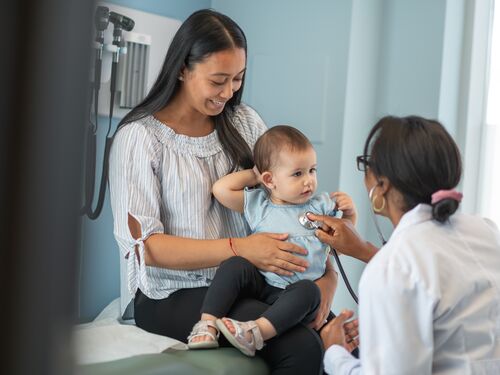New Guidance Says Decision-Makers Can Offer Incentives and Partner with Trusted Sources, Among Other Strategies, to Encourage Cooperation in COVID-19 Contact Tracing
News Release
By Megan Lowry
Last update August 25, 2020
WASHINGTON — A new rapid expert consultation from the National Academies of Sciences, Engineering, and Medicine’s Societal Experts Action Network says strategies such as giving advance notice, partnering with trusted sources, and offering incentives can encourage individuals who have tested positive for COVID-19 to respond to health department contact tracing and share information about people they may have exposed to the virus.
The new guidance, intended for decision-makers at the federal, state, and local levels, draws on lessons learned from survey data collection. Local public health departments face challenges in getting individuals to respond to outreach and share information for a number of reasons, including having concerns about confidentiality, feeling overwhelmed by a positive test result, being overloaded with information on isolation and medical services, caring for a sick family member, or feeling ill themselves.
The guidance says the following practices from survey research may encourage participation and cooperation with contact tracing:
Partnering with trusted sources. Having a request to participate come from the most trusted source possible — such as local clinics, racial and ethnic media, tribal elders, or clergy — can double the rate of participation.
Offering incentives. Even small incentives ($2 or $5) have been shown to increase response rates. In-kind incentives such as masks, hand sanitizer, or delivery of food, groceries, or household supplies might also increase participation.
Giving advance notice. Letting people know ahead of time that they may be contacted, through a prompt series of notifications as soon as individuals are tested, legitimizes future communications from their health department.
Enhancing interviewers’ skills. Skilled interviewers are essential for establishing trust and rapport, which can increase respondents’ openness.
Developing messaging that appeals to people’s motivations. People are motivated to participate by what affects them and the people they care about. Describing the benefits of participation in concrete terms is helpful in increasing survey participation rates.
Accepting partial information. People do not always know or feel comfortable sharing information about others in their social networks. However, they can be encouraged to provide just enough detail about their connections to allow contact tracing efforts to proceed.
The Societal Experts Action Network — sponsored by the National Science Foundation — is an activity of the National Academies of Sciences, Engineering, and Medicine and affiliated with the National Academies’ Standing Committee on Emerging Infectious Diseases and 21st Century Health Threats. The National Academies are private, nonprofit institutions that provide independent, objective analysis and advice to the nation to solve complex problems and inform public policy decisions related to science, technology, and medicine. They operate under an 1863 congressional charter to the National Academy of Sciences, signed by President Lincoln.
Contact:
Megan Lowry, Media Officer
Office of News and Public Information
202-334-2138; e-mail news@nas.edu
More like this
Discover
Events
Right Now & Next Up
Stay in the loop with can’t-miss sessions, live events, and activities happening over the next two days.
NAS Building Guided Tours Available!
Participate in a one-hour guided tour of the historic National Academy of Sciences building, highlighting its distinctive architecture, renowned artwork, and the intersection of art, science, and culture.

